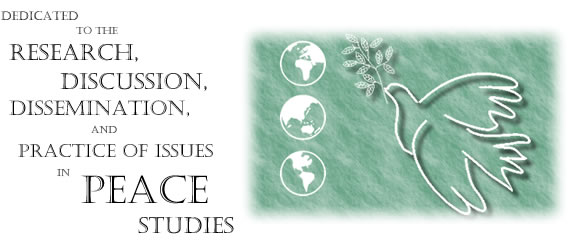International Journal of Peace Studies

Eroding the Barrier between Peace and Justice: Transitional Justice Mechanisms and Sustainable Peace
Abstract
The expansion of international trials over the last decades has reinvigorated the debate surrounding the efficacy of retributive justice over restorative justice in response to mass humanitarian crises. This study examines the ways different transitional justice models contribute to stable peace. It suggests that a hybrid utilization of both restorative justice mechanisms (e.g., amnesty) and retributive justice mechanisms (e.g., trials) is most effective in achieving a stable peace in a post-accord state, and that context is an important intervening factor. Using a mixed method approach, I first examine a group of 25 test cases, analyzing the relationship between restorative and retributive justice and post-conflict stability. I then examine more closely the paradigmatic case studies of El Salvador, Rwanda, and Mozambique in order to see how the three dominant models worked within individual country contexts. While the data suggests some linkage between the hybrid model and post-conflict stable peace, there are intervening factors (such as culture, alignment of narratives with elite and popular interests and values, and international legitimacy), which are also at work.
Recommended Citation
Pugh, Jeffery D.
(2019)
"Eroding the Barrier between Peace and Justice: Transitional Justice Mechanisms and Sustainable Peace,"
International Journal of Peace Studies: Vol. 24:
No.
1, Article 3.
Available at:
https://commons.lib.jmu.edu/ijps/vol24/iss1/3


